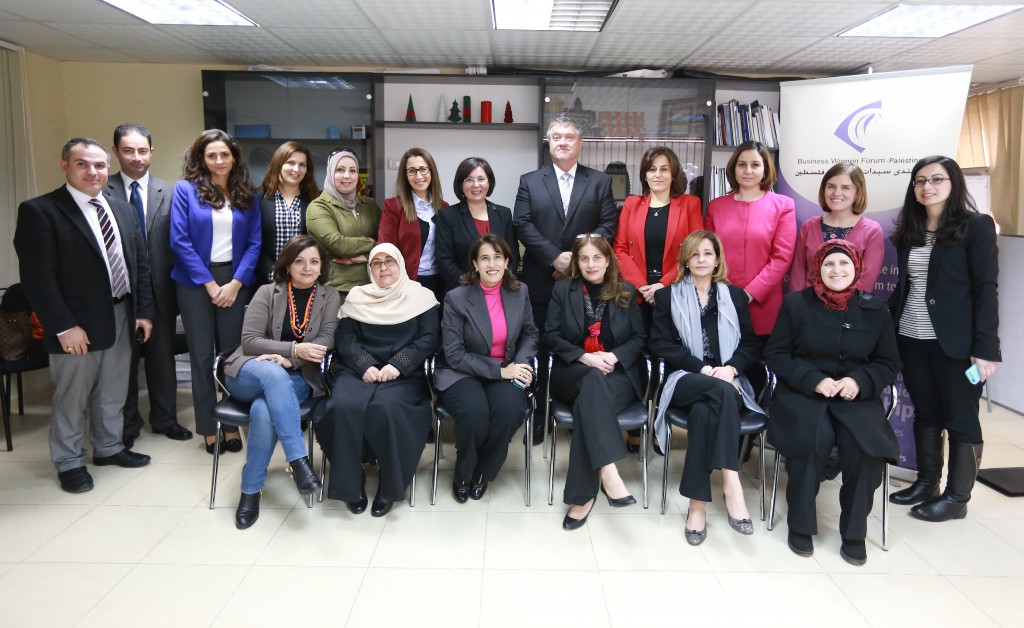Earlier this month, Palestinians joined people around the world celebrating International Women’s Day. Palestinians have much to celebrate on this day. I’ve been struck during my time here by the dedication of Palestinian women: running successful businesses; influencing politics; building communities in spite of the difficult conditions imposed by the Occupation.
To celebrate International Women’s Day, I spent last week meeting Palestinian businesswomen. All had inspiring stories of overcoming obstacles to achieve their success. I would like to share some of their stories. And I would like to describe how the British government is helping Palestinian women to achieve their economic potential.
To start off, I would like to share a story from the Palestinian Business Women Forum. Last week, I met a number of leaders, business owners, and entrepreneurs, all of whom have achieved great success. One of those inspiring women was Ikhlas Sawalah, the owner and manager of SIBA Soap. Ikhlas started her project from scratch, researching the benefits of olive oil and how it can be used in soap production. The Business women forum and its technical arm, the Business Development Center offered her great support, and today she is building a new factory in Jericho to ISO standards. Ikhlas has achieved impressive success despite having to overcome social, economic and political obstacles.
My second story comes from Noura Khaliefeh. This inspiring young lady owns “Noura Heritage House”, employing around 80 women. They combine modern designs with Palestinian traditional embroidery.
Noura is a Jerusalemite, but felt it necessary to open her business in Ramallah as many of her clients cannot enter Jerusalem. It is sad that such business is shifting away from Jerusalem. I hope that one day Noura will be able to open up in Jerusalem as well as Ramallah. In spite of this, Noura is aiming high – she is aiming to reach international markets, expand the business and introduce a furniture line.
My final story comes from Rawabi, the first master-planned Palestinian city. I had the privilege of meeting the large number of talented, enthusiastic young women working as architects, engineers, and in many other professions there. They described to me the challenges of forging a career in professions where fewer women have traditionally worked. Their enthusiasm for the project was infectious.
Having heard these success stories and witnessed this determination, I am proud that the British government is supporting Palestinian female entrepreneurs and professionals.
Firstly, through our Chevening scholarship programme. Over the past 20 years, we have supported a large number of Palestinian women to gain masters degrees in the UK. One of our priority areas in the programme is support for private sector development. We hope many more young women entrepreneurs or professionals will apply for the programme next autumn.
Secondly, through our Department for International Development, we have provided significant support to Palestinian businesses through the Palestinian Market Development Programme. One of the businesses that has benefited is the Noura Heritage House I mentioned earlier.
Finally, through our projects fund, we have provided support to women’s groups who are serving their local communities. For example, In Fasayel in the Jordan Valley we helped women obtain machines that render dairy production more efficient. In Idna west of Hebron, we helped women acquire modern sewing machines.
The 105th International Women’s Day was a great opportunity to celebrate the achievements of Palestinian women. Now we need to work together to overcome any more barriers to women succeeding. I hope we will be able to celebrate more success stories on the 106th International Women’s Day next year.

